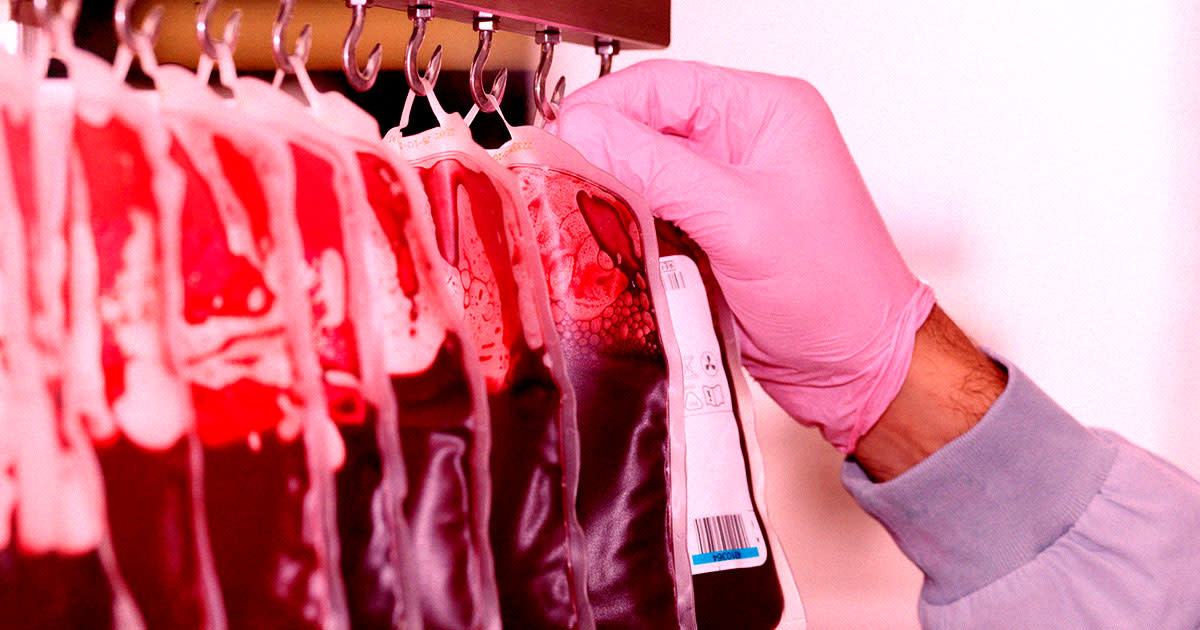Scientists Intrigued by Bacteria That Turns Any Blood Into Universal Donor Type

A team of researchers claims to have found a common bacteria that can easily manipulate the enzymes present in blood supplies to turn it into a universal donor type.
Such a process, if scaled up for clinical use, could have significant medical and societal consequences. Global blood supplies are in perennially short supply, particularly in low-income countries — a situation bound to become even more dire thanks to rapidly aging populations.
Generally speaking, blood groups are determined by the presence of A and B antigens on red blood cells. Group O types don't have either of these antigens.
Health practitioners have to be extremely careful when it comes to blood types, since transfusing the wrong one could trigger the immune system to attack the new blood cells, which can be fatal.
Researchers from the Technical University of Denmark (DTU) and Lund University in Sweden, who've been investigating a solution, discovered that specific enzymes produced by common gut bacteria were able to remove both A and B antigens, potentially paving the way to ensure a steady supply of universal donor blood.
"For the first time, the new enzyme cocktails not only remove the well-described A and B antigens, but also extended variants previously not recognized as problematic for transfusion safety," said Maher Abou Hachem, DTU researcher and lead author of a new paper about the findings published in the journal Nature Microbiology, in a statement.
The idea of removing the pair of enzymes has been around for more than 40 years. Despite scientists' best efforts, nobody had found a way to produce universal donor blood without running the risk of immune reactions, which has kept the idea from being used in clinics.
But now, Abou Hachem and his team have discovered that a common enzyme in the human gut called Akkermansia muciniphila is extremely efficient at breaking down the A and B antigens, since they closely resemble the abundant mucus it consumes in the intestine for nourishment.
"What is special about the mucosa is that bacteria, which are able to live on this material, often have tailor-made enzymes to break down mucosal sugar structures, which include blood group ABO antigens," Abou Hachem explained. "This hypothesis turned out to be correct."
A reliable and safe universal blood type would have considerable benefits.
"Universal blood will create a more efficient utilization of donor blood, and also avoid giving ABO-mismatched transfusions by mistake, which can otherwise lead to potentially fatal consequences in the recipient," Lund University hematology professor and lead author Martin Olsson said in the statement.
"When we can create ABO-universal donor blood, we will simplify the logistics of transporting and administering safe blood products, while at the same time minimizing blood waste," he added.
However, it's still far too early to tell if the new process could actually revolutionize blood transfusions. The team is now hoping to test their new process in clinical trials, but even if proven successful — which is far from being a guarantee — any commercial production is still likely many years out.
"Our focus is now to investigate in detail if there are additional obstacles and how we can improve our enzymes to reach the ultimate goal of universal blood production," Abou Hachem explained.
More on blood: Alzheimer's May Spread Through Blood Transfusions, Scientists Find

 Yahoo News
Yahoo News 
